Whether you want to become a notary public or start a notary business, this career path offers a fantastic opportunity to earn extra income while enjoying the flexibility of setting your schedule. You can even do it as a side hustle with your real estate business! Each state has its own set of requirements. Generally, prospective notaries undergo training, obtain a surety bond, submit an application, and acquire the necessary tools to kick-start their notary business. Keep reading as I review the role, salary, and steps on how to become a notary and start earning money.
What Is a Notary?
A notary public is an individual appointed by the government to verify the identity of parties during the signature of important documents, like legal contracts, wills, car title transfers, or home loans. Notaries are official representatives of the state where they operate. Becoming a notary is a relatively straightforward and affordable process that allows professionals in various industries to make additional income.
How Much Do Notaries Earn?
Public notaries earn an average salary of approximately $61,000 per year. However, the potential income of being a notary public depends on your state and the type of notary position you choose. Stationary notaries provide services to customers as needed, while mobile notaries travel to locations that require a witness.
Mobile notaries can travel for the following industries that commonly use notaries for witnessing such transactions:
- Real estate: Uses notaries in real estate closings to witness signatures on a promissory note, deed of trust or mortgage, closing disclosure, or closing statement.
- Insurance: Documents like insurance claim forms, beneficiary request forms, and change of ownership documents need notarizing.
- Title companies: Title companies facilitate the signature on a property for sale. Usually, an 80- to 125-page document is generated by a lender in such transactions, requiring a notary to be present.
- Financial services: Banks have a variety of documents that need to be notarized. They may require a notary on claims, new policies, or transfer of assets.
- Attorneys: Certain legal documents like prenuptial agreements, articles of incorporation, or legal affidavits require a notary signature.
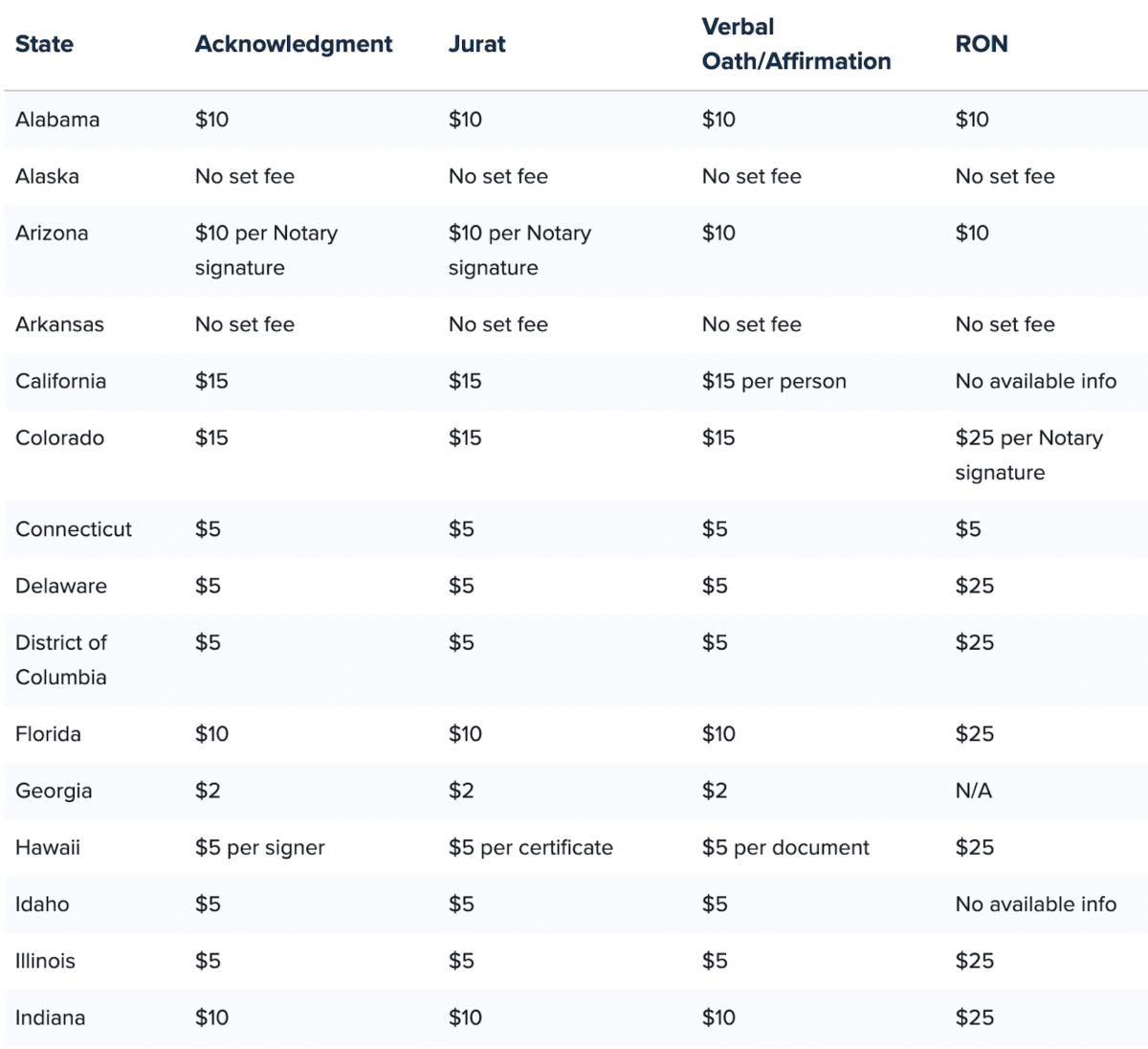
Becoming a notary is a great strategy to earn additional income without choosing a new career. Learn about other great options to earn money or change your career in our guide: 15 Real Estate Jobs Without a License and 13 Jobs You Can Get With a Real Estate License.
Step 1: Confirm Your State’s Requirements
To learn how to start a notary business from home or what it takes to be a notary, check your state’s requirements. Although each state is different, most states require you to be at least 18 years of age, be a legal resident in the state you are applying for, and have no fraudulent or felony charges on your record. Some states also require you to be able to read and write in English.
For example, Louisiana and Georgia have a few of the same qualifications; however, their education, background, and other requirements differ. Check it out:
|
|
|
|
|
For more details on how to start a notary business and how to become a US notary, click on your state on the map below to review the specific requirements to qualify.
Step 2: Complete Your Education & Training
Obtaining your public notary license is similar to becoming a real estate agent, which requires state-specific prelicensing education. The training to become a notary is shorter than that for real estate agents, with educational hours required varying between two and six hours. Some states have no education requirements. You must understand Notary Public License Law if your state doesn’t specify prelicensing hours. For instance, New York and Utah don’t require an education course, but you must pass the state exam on the law.
Here are the states that require education:
- California
- Oregon
- Nevada
- Montana
- Wyoming
- Colorado
- New Mexico
- Missouri
- Wisconsin
- Illinois
- Indiana
- Ohio
- Pennsylvania
- New Jersey
- Vermont
- Maryland
- District of Columbia
- North Carolina
- Florida
Since learning how to start a notary business differs in each state, the cost of becoming a notary also varies. For example, the Secretary of State of Colorado provides a free education course for becoming a notary online. However, paid notary courses start at around $40.
Step 3: Pass the Notary Exam
When learning how to become a notary, look into your state’s exam procedures and scheduling. Details are on your state’s Secretary of State website or the National Notary Association’s state-specific guide. Not all states require you to pass an exam to be a notary public. However, tests can be offered online or proctored in person in states that provide them. Most notary tests consist of multiple-choice and true/false questions, with states implementing a minimum passing score requirement.
|
|
Step 4: Get a Surety Bond (if Required)
Surety bonds are required in many states to ensure that notaries perform their duties according to the law, protecting the public from potential damages or financial harm. These bonds are easy to obtain and typically only require basic information from the notary for the application. While the notary is responsible for paying any claims made against the bond, it’s recommended that they also have errors and omissions insurance.
Some states require a bond amount of as little as $500, like Wisconsin and Wyoming, or it can be as high as $50,000 in Alabama. The cost of the bond does not correlate with the bond amounts. For example, Surety Bonds Direct offers Alabama Surety bonds for only $100 for a $50,000 bond amount, yet Louisiana has a $10,000 bond requirement, and the cost is $110.
Here are the states that require a safety bond:
- Alabama
- Alaska
- Arizona
- Arkansas
- California
- District of Columbia
- Florida
- Hawaii
- Idaho
- Illinois
- Indiana
- Kansas
- Kentucky
- Louisiana
- Michigan
- Mississippi
- Missouri
- Montana
- Nebraska
- Nevada
- New Mexico
- North Dakota
- Oklahoma
- Pennsylvania
- South Dakota
- Tennessee
- Texas
- Utah
- Washington
- Wisconsin
- Wyoming
Step 5: Submit a Notary Application
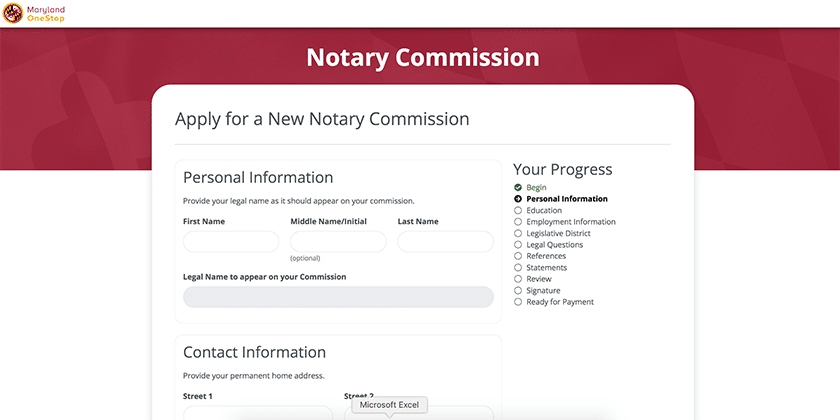
Once you’ve learned how to start your own notary business, get certified as a notary public, and complete your requirements, it’s time to submit the paperwork. Make sure to double-check the application procedures for your state, as some applications are submitted online and some are mailed to different state entities. Your application usually requires a filing fee ranging from $25 to $50.
Along with the application, some states will require you to submit documents like proof of education training and state exam scores, proof of bond, fingerprints, and background checks. When your application is approved, you’re officially a notary business and should receive your certificate. However, a few states, like Connecticut, require you to file your certificate, take the oath of office, and pay a recording fee of $10.
Step 6: Buy Your Notary Supplies
To start learning how to be a notary public, make sure you have the appropriate supplies. You can purchase these tools on websites like the American Association of Notaries or All State Notary Supplies. The important tools you’ll need as a notary are as follows:
| Supply | Notary Stamp | Metal Embosser Seal | Notary Journal | Extra Notary Certificates | Inkless Thumb Printer |
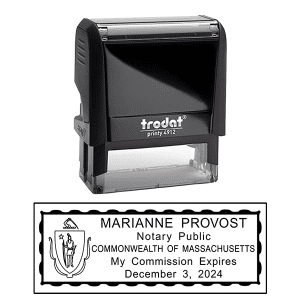 |  | 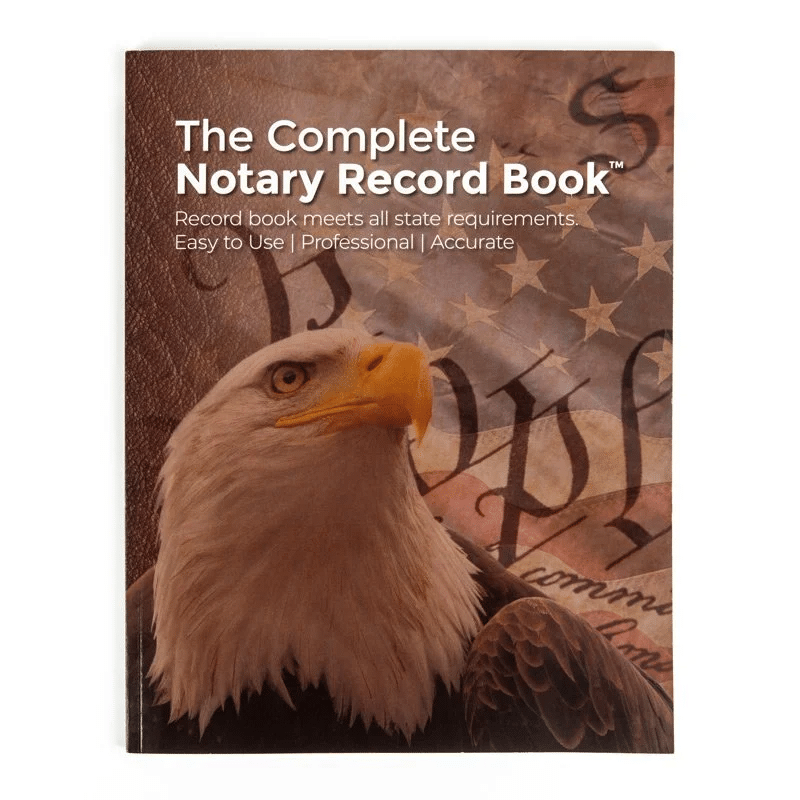 | 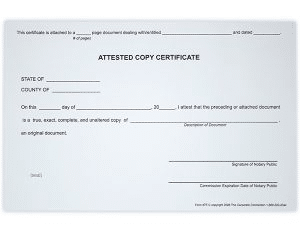 |  |
|
| Description | This self-inking stamp contains your current notary commission information. It will be stamped on every document you notarize. | This raised seal stamp creates an impression on documents with notary information. This is required on certain documents. | Use this book to keep a record of your notary activities and the fees charged for service. | Keep multiple copies of notary certificates on hand to attach to a document that lacks notary language or if the document lacks ample room for a notary seal. | Notaries may want to have an inkless thumb printer to obtain the signer's fingerprint for the record. |
| Starting Price | $22.99 | $29.95 | $14.99 | $14.99 | $14.99 |

In addition, creating a “fee chart” that displays the fees for your notary services is best. This can be emailed to your customers and displayed in your office. Use a professional graphic design service like 99designs to help you create and design a flyer, printed document, or poster starting at just $169. Simply submit a quick brief describing your design needs, and the platform will connect you with its community of graphic designers to either hire one or create a contest for the best custom design.
Step 7: Advertise Your Services & Start Your Notary Career
The overhead cost of becoming a notary is relatively low compared with launching other businesses, but your success depends on the effort you put into it. To grow your notary public business, you must promote your services and have a system to capture leads and communicate with customers.
Like real estate agents, notaries must use lead generation tactics to gain clients for their notary business. There are an endless number of local marketing ideas, which may include the following:
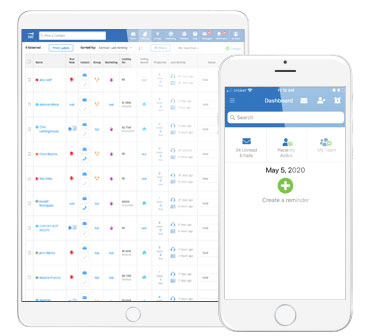
Consider starting with a comprehensive marketing tool like Market Leader that includes a variety of marketing platforms, like email marketing, print marketing, and a complete branding and design suite. Market Leader makes it easy to create a beautiful and professional website and manage leads with the built-in customer relationship manager (CRM).
Frequently Asked Questions (FAQs)
How long does it take to become a notary?
For states that don’t require specific coursework, you can typically obtain your public notary license in as little as four weeks, contingent on your state’s processing time. However, if your state requires education hours, completing those and taking the state exam will take longer.
How much does it cost to become a notary?
To become a notary, you may have to purchase prelicensing education, pay a state exam fee, purchase a surety bond, or buy required supplies. However, some states don’t require any of these things, so the cost of becoming a notary can be less than a few hundred dollars.
What is the hardest state to become a notary?
According to the National Notary Association, Louisiana has unique civil law codes that make the education and exam to become a notary particularly difficult. In addition, New York, California, and North Carolina have test restrictions that make passing the exam challenging.
Bringing It All Together
Figuring out what you have to do to become a notary can be challenging since each state has different requirements. However, starting a notary business is possible for anyone willing to put in the time and effort. To learn how to become a notary, follow the steps above, and enjoy benefits like a flexible work schedule and multiple income opportunities.









Add comment